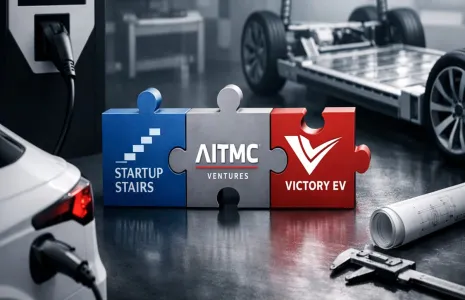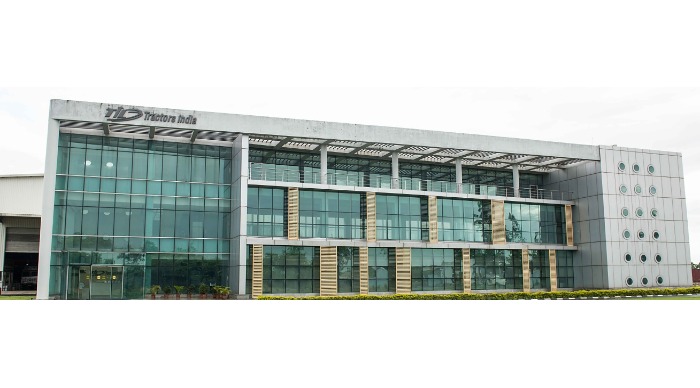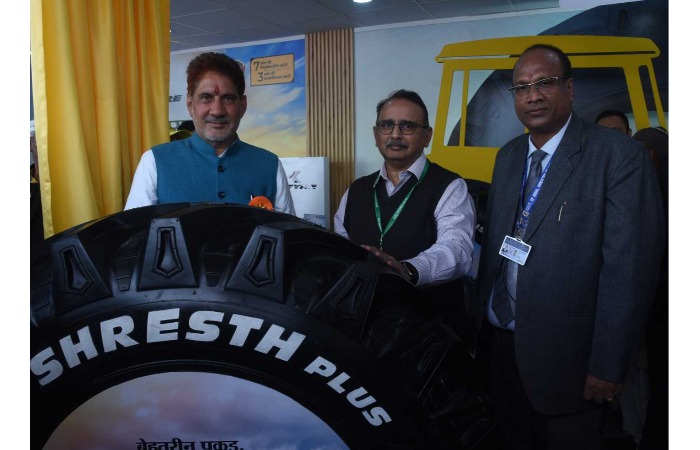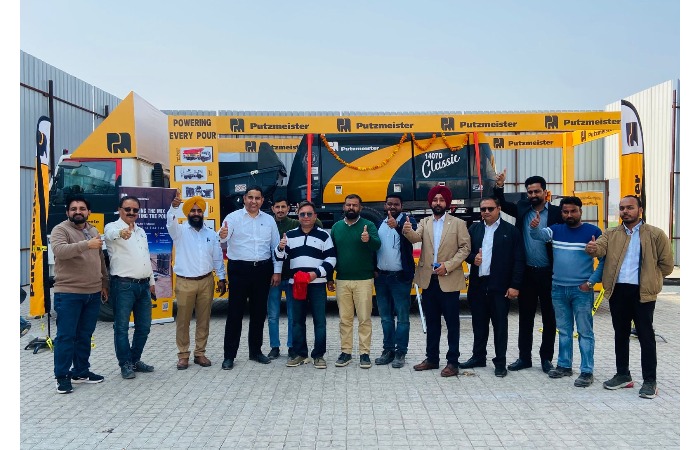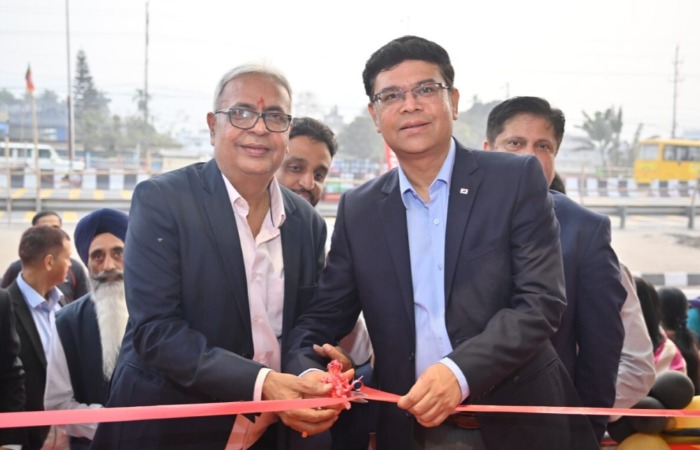Schedule a Call Back
Maximising Equipment Efficiency
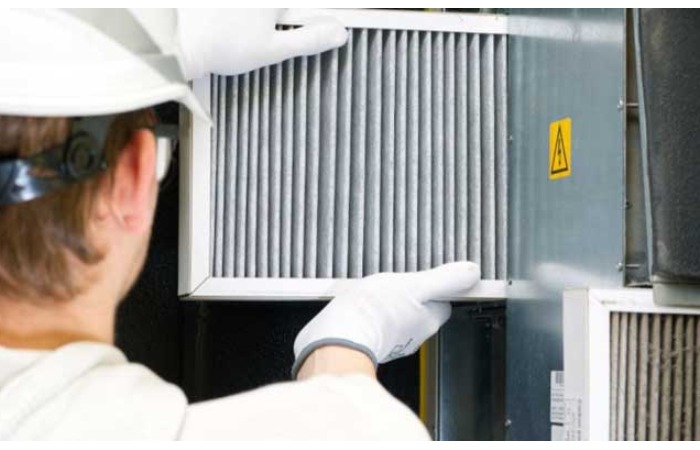 The construction equipment industry has always been driven by the need for improved efficiency, reduced operational costs, and enhanced performance. One often overlooked component that plays a critical role in achieving these goals is the filter system. Filters are essential for maintaining the longevity and reliability of heavy machinery by preventing contaminants from damaging key engine components, hydraulic systems, and other critical systems.
The construction equipment industry has always been driven by the need for improved efficiency, reduced operational costs, and enhanced performance. One often overlooked component that plays a critical role in achieving these goals is the filter system. Filters are essential for maintaining the longevity and reliability of heavy machinery by preventing contaminants from damaging key engine components, hydraulic systems, and other critical systems.In recent years, several trends have emerged in the filters used within construction equipment. These trends are shaping the industry’s approach to equipment maintenance, performance, and environmental responsibility.
The growth of the market is attributed due to the increasing road and paving construction, which uses heavy machinery. The use of construction machinery filter reduces the maintenance costs, therefore a significant increase in the efficiency of construction machinery for road construction across the various developing economies due to the fact the heavy investments are being done in countries such as China, India, and Indonesia for the construction of highly advanced and durable road transport networks. In addition, the development of rural areas in India has led to the construction of new roads and highways networks for the connection of rural and urban communities.
Growing infrastructure investment across countries is expected to boost the demand for Structural Health Monitoring (SHM) systems due to the benefits they add pertaining to the sustainability of structures and low cost in maintenance and inspection after being built. Emphasis on superior infrastructure is a key policy factor in both the developing and the developed world as a robust infrastructure forms the base for overall economic growth and high productivity in public as well as private sectors. Be it the building of bridges, dams, buildings, stadiums, flyovers, railway stations, and shopping malls, or be it applications such as diagnosing vessels and platforms in marine industries, aircraft frames in aerospace and defense, and inspection of large machines, heavy investments are being made in all the above, hence, likely to give a push to the adoption of premium quality construction machines filters at an even larger scale.
Technology in filters
Changing filters before the service life expires causes higher costs and additional maintenance time. Smart filter monitoring Senzit from Mann and Hummel India provides more uptime to its customers and manages fleet maintenance. It uses sensors to monitor the air filter status of agricultural, construction or mining machinery and stationary generators. In addition to the filter load status and remaining filter lifetime, Senzit also registers the number of machine hours worked. Senzit increases machine uptime, protects the vehicle engine and prevents unnecessary filter changes. The result: highest utilisation of the filter capacity and a longer service life of the machines.
Customers benefit from valuable machine insights and improved total cost of ownership. Predictive maintenance instead of fixed service intervals avoids unexpected machine downtime and extended end-customer loyalty. Senzit immediately transfers the result to the user's mobile device.
Hengst Filtration supplies technologically leading filtration systems in the fields of plant and mechanical engineering, industrial filtration, hydraulics, life science and health care. Sandip Mehta, Managing Director, Hengst India, said, “R&D plays a pivotal role in Hengst’s strategy, focusing on developing new materials and methods to enhance filtration efficiency while reducing energy consumption. Through continuous innovation in filtration media and technologies, Hengst aims to lead the industry in offering solutions that meet the evolving needs of global markets and environmental standards.”
Hengst sees India as a critical part of its global strategy, with the Bengaluru plant being its first fully owned subsidiary in the country. The expansion aligns with India’s growth story and its needs for advanced filtration solutions in various sectors, from industrial and automotive to healthcare and environmental protection. “The company already sources components from India for global use and plans to expand its export activities. India’s manufacturing competitiveness makes it an ideal hub for producing and exporting various products, particularly in mobility and other sectors Hengst operates in. This strategy reflects Hengst’s intention to utilise India not just as a market, but as a key global manufacturing base,” said Mehta.
Speaking on the current Indian market, Manikandan M, Country Head – Sales, Filtrec Bharat Manufacturing, said, “As India is expected to become the 3rd largest economy in the world by FY 28, the construction equipment industry is expected to have three times growth in the next six to eight years. Expected to be the third largest market in the world, it was essential to establish our own plant here in India. This move aligns with the increasing investments from European and US customers in India.”
He added, “We collaborate with OEMs in all stages from design to delivery and service. From the OEM perspective, they spend a huge portion of the procurement budget on Engine, Hydraulic & electrical categories. To bring down the Total ownership cost of the Machine, most OEMs are engaged in the activity of productivity improvement and bringing down the maintenance cost. We, as the Filter manufacturer, are helping OEMs to extend the service interval and avoid the breakdown of high-value hydraulic systems. This collaborative approach enhances machine productivity.”
IQORON VP range offers a flexible filtration concept, which shows its strengths, especially in extremely dusty environments. The two-stage air cleaners which make the most of installation space complements conventional round air cleaners and provide the necessary flexibility for numerous applications. The core element of the compact air cleaner series is the innovative filter element concept called VarioPleat. It provides a particularly high-power density with filter systems, with an axial air flow. The ENTARON XD series sets new standards for two-stage air cleaners. This series combines the best characteristics of the successful and proven Europiclon and NLG air cleaners with a number of innovative new ideas. This makes the ENTARON XD the new benchmark for two-stage tangential air cleaners.
Common problems caused by lack of filtration
One of the most overlooked aspects of industrial processes is the importance of filtration. Many businesses fail to realise the detrimental effects that can arise from a lack of proper filtration systems. Whether it's in the manufacturing, automotive, or even food and beverage industries, the consequences of inadequate filtration can be severe. In this article, we will explore the common problems that can be caused by the lack of filtration and why investing in a Lubricating Oil Filtration Machine is crucial.
One of the primary problems that arise from a lack of filtration is contamination. In industrial settings, various contaminants can find their way into lubricating oils, such as dirt, debris, and even metal particles. These contaminants not only affect the performance of machinery but can also lead to irreversible damage. Without proper filtration, these harmful particles can circulate within the machinery, causing wear and tear, reducing efficiency, and ultimately leading to costly breakdowns.
Another issue that arises from the lack of filtration is the buildup of sludge and impurities in lubricating oils. Over time, as oils are used and reused, they can become contaminated with impurities that settle at the bottom, forming sludge. This sludge can clog machinery components, restrict oil flow, and hinder the overall performance of the equipment. Without a reliable filtration system in place, the sludge can accumulate, leading to increased maintenance costs, decreased productivity, and even premature equipment failure.
Furthermore, the lack of proper filtration can also result in poor product quality. In industries where lubricating oils are used as part of the manufacturing process, the presence of contaminants can impact the final product. Contaminated oils can lead to product defects, inconsistencies, and even safety concerns. By investing in a Lubricating Oil Filtration Machine, businesses can ensure that their oils are free from impurities, thus enhancing product quality and customer satisfaction.
In conclusion, lubricating oil filtration machines are vital for maintaining machinery in various industries. They remove contaminants, water, and dissolved gases from lubricating oil, ensuring optimal performance and longevity. Lack of filtration can lead to problems such as contamination, sludge buildup, and poor product quality. Investing in reliable filtration machines is essential for businesses to maintain machinery integrity, reduce maintenance costs, and deliver high-quality products.
These machines offer key features and advantages, including impurity removal, customisation, cost-effectiveness, and environmental sustainability. They help prevent wear and tear, maintain oil quality, and contribute to cost savings. The impact of contaminated oil on construction equipment is significant, leading to increased wear, reduced efficiency, and higher costs. By incorporating filtration machines and proper maintenance, construction companies can ensure equipment longevity and optimal performance. Overall, investing in lubricating oil filtration machines improves equipment reliability, extends oil life, reduces costs, and promotes environmental sustainability.
Contamination of oil in construction equipment can have a significant impact on its overall performance and longevity. Construction machinery relies heavily on lubricating oil to ensure smooth operation and prevent excessive wear and tear. However, when this oil becomes contaminated, it can lead to a multitude of problems that can adversely affect the equipment.
One of the key solutions to combat oil contamination is the utilization of lubricating oil filtration machines. These machines play a crucial role in removing impurities and contaminants from the oil, thereby enhancing its quality and extending its lifespan. By effectively filtering out harmful particles, such as dirt, debris, and metal shavings, these filtration machines help maintain the oil's integrity and prevent it from causing damage to the equipment.
The impact of contaminated oil on construction equipment can be far-reaching. Firstly, it can lead to increased friction between moving parts, resulting in excessive heat and wear. This, in turn, can lead to premature failure of critical components, such as bearings, gears, and hydraulic systems. Repairing or replacing these components can be costly and time-consuming, causing unnecessary downtime and delays in construction projects.
Moreover, contaminated oil can also hinder the overall efficiency and performance of the equipment. It can impair the proper functioning of hydraulic systems, leading to reduced power output and compromised maneuverability. Inaccurate readings from sensors and gauges can occur due to the presence of contaminants, leading to incorrect diagnostic information and potential malfunctions.
Additionally, contaminated oil can have a detrimental effect on fuel consumption. When oil is contaminated, the equipment may need to work harder to compensate for the reduced lubrication properties, resulting in increased fuel consumption and decreased productivity. This not only impacts the operational costs but also contributes to environmental pollution.
To mitigate the impact of contaminated oil, regular maintenance and monitoring are essential. Implementing a comprehensive oil analysis program can help identify the early signs of contamination and allow for timely intervention.


Subscribe Now
Subscribe to our Newsletter & Stay updated
RECENT POSTS
Popular Tags
Folliow us
Related Stories
JK Tyre Strengthens Farm Portfolio with Launch of ‘Shresth Plus’
K Tyre & Industries, one of India’s leading tyre manufacturers, launched its all-new premium farm tyre, ‘Shresth Plus’, at Krishi Darsh...
Putzmeister Drives Punjab Outreach with Roadshow
Putzmeister Concrete Machines has expanded its customer engagement efforts across Punjab with a multi-city roadshow, reinforcing its presence in ...
Bridgestone Expands Guwahati Retail Network
Bridgestone India has strengthened its retail footprint in Assam with the inauguration of two new Bridgestone Select Stores in Guwahati, reinforc...


